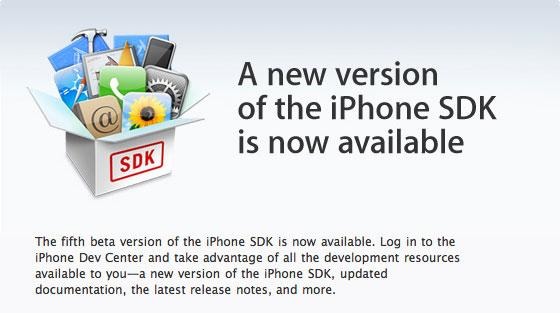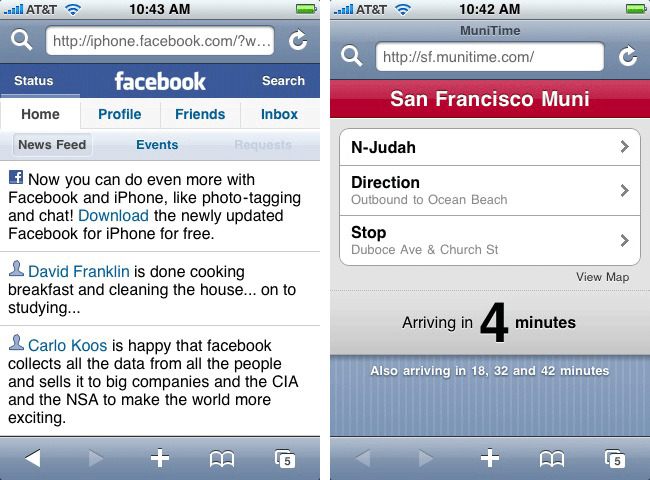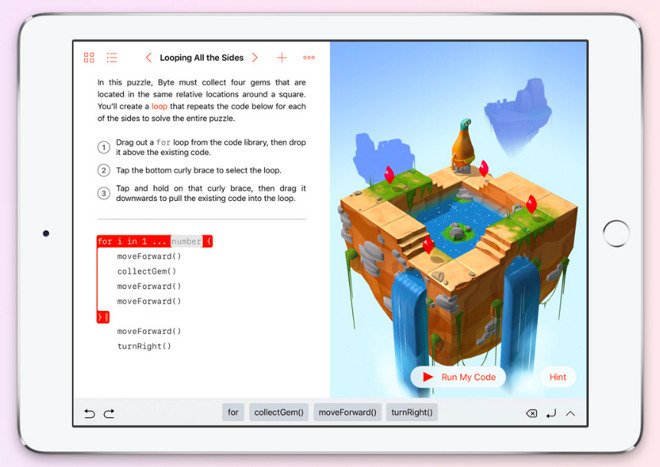Nine years ago, Apple released its first Software Development Kit for iOS, enabling third parties to build native apps for iPhone and iPod touch for sale in the iTunes App Store. The program has since generated over $60 billion for Apple's developers and has created 1.4 million jobs related to app development.
Apple initially launched its first iOS devices in 2007 without any ability to load third-party native software. Apart from its own first party software Apple bundled on the devices, iPhone and iPod touch could only otherwise run web apps within the Safari browser.
After the original iPhone announcement, Apple's then chief executive Steve Jobs took questions from the stage at the company's shareholder meeting. I asked about whether Apple recognized the demand for native iPhone apps, and whether it would reconsider its current stance that limited third-party apps to the web. Jobs answered that Apple was looking at the issue, including security issues involved with opening up access to the new platform.
Calls for opening up native iOS apps continued to mount, particularly after iPhone shipped at the end of June 2007 and users got their first experience working with Apple's own native apps on the mobile device.
Seeing the rich, "desktop class" native applications Apple itself had developed for iPhone using Objective C— effectively Mac apps scaled down and optimized to work with the iOS multitouch interface, including Mail, Safari and Maps— outside developers stridently lobbied for similar access. Without access to Apple's development native frameworks, they could only build specialized web apps, like these pictured below (Facebook and a transit web app).
Apple had decades of experience in building development tools for its Mac platform, but mobile devices opened up new challenges related to security and privacy. Since 2005, the company had also begun working on signed, secured iPod Games downloadable through iTunes for purchase, in partnership with a few video game developers. The brand new software running iPhone also needed further security vetting before opening access to third parties.
By October 2007— just over three months after iPhone went on sale— Jobs announced that Apple would release the tools needed for third-party developers to create their own iOS apps.
"Let me just say it: We want native third-party applications on the iPhone, and we plan to have an SDK in developers' hands in February," Jobs wrote in an online comment."We are excited about creating a vibrant third-party developer community around the iPhone and enabling hundreds of new applications for our users. With our revolutionary multi-touch interface, powerful hardware and advanced software architecture, we believe we have created the best mobile platform ever for developers.
"It will take until February to release an SDK because we're trying to do two diametrically opposed things at once— provide an advanced and open platform to developers while at the same time protect iPhone users from viruses, malware, privacy attacks, etc. This is no easy task. Some claim that viruses and malware are not a problem on mobile phones— this is simply not true. There have been serious viruses on other mobile phones already, including some that silently spread from phone to phone over the cell network. As our phones become more powerful, these malicious programs will become more dangerous. And since the iPhone is the most advanced phone ever, it will be a highly visible target.
"Some companies are already taking action. Nokia, for example, is not allowing any applications to be loaded onto some of their newest phones unless they have a digital signature that can be traced back to a known developer. While this makes such a phone less than 'totally open,' we believe it is a step in the right direction. We are working on an advanced system which will offer developers broad access to natively program the iPhone's amazing software platform while at the same time protecting users from malicious programs.
"We think a few months of patience now will be rewarded by many years of great third-party applications running on safe and reliable iPhones. - Steve
"P.S.: The SDK will also allow developers to create applications for iPod touch."
After delivering its developers the new iOS SDK just a few days later than intended in early March 2008, Apple opened the iOS App Store and customers immediately began buying incredible numbers of iPhone apps.
As iPhone hardware sales took off, the demand for software titles grew along with it. In 2010 Apple added iPad to the iOS App Store, enabling a larger format of tablet-optimized apps. Later that year Apple launched an App Store for Macs, although the much smaller user base among Mac users, coupled with iOS-style restrictions on Mac Apps, has made it a far smaller operation.
Attempts by other mobile platform vendors to compete with the App Store have also been weak. Nokia's Ovi, Palm's App Catalog, Microsoft's Windows Phone Store and BlackBerry World failed to garner Apple success despite having larger installed bases of users.
Apple's closest competitor has been Google's Play for Android, which has often boasted more titles and more users but still trails the App Store in overall quality and desirable, exclusive titles for smartphones and tablets. Developers overwhelmingly write for iOS first because Apple's platform has consistently offered better development tools, a unified platform of devices on the same OS release, and far less hardware fragmentation.
Last summer, App Annie reported that while Google Play served twice as many downloads, the App Store generated twice the revenue. Apple's rapidly growing app business has been the primary driver of the company's Services segment.
Apple's all about the Apps
Apple directly benefits from App Store sales and In App Purchases. Interest in apps also helps to drive demand for premium hardware that runs the latest games and innovative software.
The strategic importance of the App Store is reflected in Apple's decision last winter to move its App Stores out of Eddy Cue's iTunes and iCloud oversight and instead assign them to Phil Schiller, its head of worldwide marketing.
The company has also invested heavily in making it easier to develop iOS apps, apparent in its work on the Swift programing language introduced in 2014 and the company's new Swift Playgrounds for iPad, a new tool designed for teaching the basics of code to a new generation of aspiring programmers.
Apple's focus on apps is also apparent in its portrayal of apps as being "the future of television" on Apple TV, and a renewed effort to make Apple Watch a more effective platform for third-party developers with the release of watchOS 3.0.
The company has also made apps— rather than just hardware features— central to its accessibility efforts intended to make the power of computing available to as many people as possible. Last year at WWDC, Apple invited deaf-blind accessibility advocate Haben Girma to address third-party app developers at its development conference, to encourage them to think about building accessibility into their own apps from the start.
Despite reporting the "death of apps," 2016 was the best year ever
Last year, a series of tech luminaries gravely warned that apps were over. Peter Kafka of recode gravely warned that "the app boom is over;" Casey Newton of The Verge wrote of app developers facing bankruptcy; Alex Austin of TechCrunch profiled Apple's App Store as being a "graveyard" with "an air of hopelessness."
However, during 2016 Apple actually paid its app developers a record $20 billion, an increase of 40 percent over 2015. In the months since, Apple has set new records including a new all-time high on January 1, 2017 where the company sold nearly $240 million worth of software in one day.
Apple notes there are now 2.2 million titles in its App Stores, an increase of 20 percent over the previous year. Sales in China grew by 90 percent, and Apple now operates App Stores in 155 countries globally.
 Daniel Eran Dilger
Daniel Eran Dilger










-m.jpg)






 Bon Adamson
Bon Adamson
 Marko Zivkovic
Marko Zivkovic
 Wesley Hilliard
Wesley Hilliard
 Amber Neely
Amber Neely

 Malcolm Owen
Malcolm Owen
 William Gallagher
William Gallagher





-m.jpg)



16 Comments
I'm highly suspicious of that 1.4 million jobs number. I imagine a number of those so-called jobs are not earning a living wage.
So at best that was $25B for Apple. After discounts on iTunes cards, etc I'm wondering how much they actually grossed on apps.